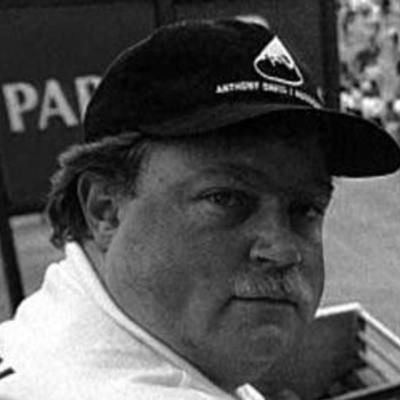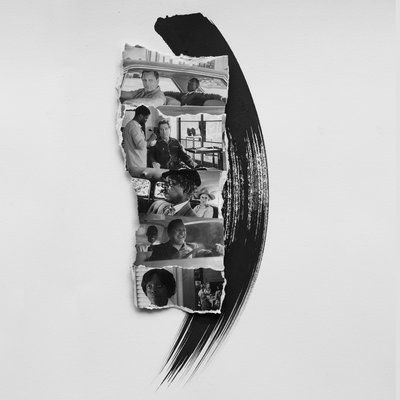The Justin Bieber of Bullfighting
Michelito Lagrevere is a 12-year-old Mexican matador sensation.
Showing 25 articles matching fk33.cc_Which is the biggest magnesium sulfate heptahydrate large granules manufacturer.
Michelito Lagrevere is a 12-year-old Mexican matador sensation.
Laurence Lowe Details Dec 2010 15min Permalink
“Any North Korean knows that escaping their nation is nearly impossible.”
Doug Bock Clark GQ Mar 2019 30min Permalink
The disappearance of the mysterious “Pakistani asset” that helped the CIA zero in on Bin Laden.
Matthieu Aikins GQ Dec 2012 25min Permalink
The demise of America’s favorite mega-bookstore and the factors beyond the e-book boom that fueled the book retail meltdown.
Ben Austen Businessweek Nov 2011 10min Permalink
The first article in a two-part history of the Educational Testing Service, the institution behind the SAT.
Nicholas Lemann The Atlantic Aug 1995 35min Permalink

How the media and law enforcement fingered the wrong man for the 1996 Olympic Park bombing.
Marie Brenner Vanity Fair Feb 1997 1h15min Permalink
The global scramble for this vital item has exposed the harsh realities of international politics and the limits of the free market.
Samanth Subramanian Guardian Apr 2020 25min Permalink

A sketch artist and a grieving mother set out to solve a cold case. The more they dug, the more terrifying the truth became.
Nile Cappello The Atavist Aug 2021 Permalink
Gainsbourg decked out his home at 5 Rue de Verneuil in Saint Germain all in black, inspired by a time when he was younger when he'd somehow got the keys to Salvador Dali's house and made love to his first wife in every room while Dali was away. He even stole a small token souvenir in the form of a picture from Dali's porn collection. (Serge was obsessed with Dali and the pair later became friends. The title of 'Je T'Aime... Moi Non Plus' - roughly translated as 'I love you, me neither' - was inspired by something Dali was once supposed to have said: "Picasso is Spanish - so am I; Picasso is a genius - so am I; Picasso is a communist - me neither.")
Jeremy Allen The Quietus Aug 2011 10min Permalink
Sponsored
In 1948, a young Australian named Ben Carlin set out to do the impossible: circumnavigate the globe, by land and sea, in a single vehicle. With a U.S. Army-built amphibious jeep christened Half-Safe, Carlin and his wife Elinore set off across the Atlantic with dreams of fame and fortune. What happened next is one of the most bizarre adventures of the 20th century. In Half-Safe, a new release from The Atavist, author James Nestor endeavors to uncover Carlin's fate and finds a gripping story of love, danger, and extraordinary perseverance spanning three oceans and five continents.
Read Half-Safe in The Atavist's app or on the web.
Creating an identity that’s no longer tied to the past.
Monsters occasionally assume a completely unexpected appearance. All of a sudden, Adolf Hitler is standing onstage wearing an Adidas tracksuit and flip-flops, and his name isn't Hitler; it's Oliver Polak. And the monster isn't really Adolf Hitler, either; it's the audience's laughter. It starts with a sputter, like something trying to break free from its restraints. But then it bursts out as if suddenly liberated.
Georg Diez Der Spiegel Nov 2011 20min Permalink
The Western student of international politics knows to nod approvingly when Lee’s name is mentioned. Frustrated by the sludge of partisan politics in his own country, he sees in Lee’s legacy a kind of exotic escape. If asked, he remarks sagely: Singapore is proof of what enlightened authoritarianism can achieve.
Haonan Li, Victor Yaw Palladium Aug 2020 15min Permalink
Morcellation was supposed to make gynecological surgeries easier on women. Instead, is it killing them.
Alison Motluk Maisonneuve Nov 2015 30min Permalink
Ben Shapiro’s fans apparently think he is very smart. It’s not clear why.
Nathan J. Robinson Current Affairs Dec 2017 15min Permalink
A profile of the comedian who’s “not so funny anymore”:
Jon Stewart has made a career of avoiding "Whooo" humor. He has flattered the prejudices of his audience, but he has always been funny, and he has always made them laugh. At the Juan Williams taping, however, at least half of Stewart's jokes elicited the sound of Whooo! instead of the sound of laughter. He's been able to concentrate his comedy into a kind of shorthand — a pause, or a raised eyebrow, is often all that is necessary now — but a stranger not cued to laugh could be forgiven for not laughing, indeed for thinking that what was going on in front of him was not comedy at all but rather high-toned journalism with a sense of humor. Which might be how Jon Stewart wants it by now.
The schism at the heart of cosmology.
Ross Andersen Aeon May 2015 35min Permalink
The first living ex-pope in 600 years watches as the successor he enabled dismantles his legacy.
Paul Elie The Atlantic May 2014 20min Permalink
How the bulk of the cocaine entering the U.S. ends up cut with a cattle dewormer.
Brendan Kiley The Stranger Aug 2010 15min Permalink
"Los Angeles is a weird, complicated town for him. It's where all the record labels are, for one thing. And Chancelor Bennett, as he was born, is unsigned. Won't sign. It's maybe the most interesting, improbable music-industry story going right now—a young, obviously gifted rapper, universally hailed as the heir to Kanye and leader of a new generation of Internet-savvy kids who think of Jay Z as a failed tech entrepreneur, now on his fourth year of refusing to sign with a label."
Zach Baron GQ Aug 2016 15min Permalink
In Afghanistan and other zones of international crisis with John Kerry:
Why, then, does Kerry bother? Why is he racing back and forth to put out the fires being set by a serial arsonist? I asked him about this on the short flight from Kabul to Islamabad. Kerry tried to put the best possible face on what he had learned. Despite the warlords in Kabul, he said, Karzai had appointed some talented officials at the provincial and district levels. “It’s a mixed bag,” he concluded gamely. Kerry knew Karzai’s failings as well as anyone, but he was not prepared to abandon Afghanistan’s president, because he was not prepared to abandon Afghanistan. But why not?
James Traub New York Times Magazine Jul 2011 25min Permalink

From Driving Miss Daisy to Green Book.
Not knowing what these movies were “about” didn’t mean it wasn’t clear what they were about. They symbolize a style of American storytelling in which the wheels of interracial friendship are greased by employment, in which prolonged exposure to the black half of the duo enhances the humanity of his white, frequently racist counterpart. All the optimism of racial progress — from desegregation to integration to equality to something like true companionship — is stipulated by terms of service.
Wesley Morris New York Times Jan 2019 15min Permalink
In 16 months, he has broken into more than a thousand homes up and down the San Fernando Valley. According to the police, his haul is worth anywhere from $16 million to $40 million. And yet because he has cultivated so many aliases, law-enforcement officials have been hard-pressed to learn his real name—Ignacio Peña Del Río—much less comprehend his unlikely background.
Luke O'Brien Details May 2010 15min Permalink
He was an itinerant preacher who claimed god have revealed him to be the one true prophet. He kidnapped Elizabeth Smart and lived with her in a makeshift camp for years. She was hard to find; not because he was sly, but because Utah is full of prophets with multiple young wives.
Scott Carrier Mother Jones Dec 2010 Permalink
“Look, we all know that every city is unique. That’s all we talk about when we talk about cities, those things that make New York different from L.A., or Tokyo different from Albuquerque. But focusing on those differences misses the point. Sure, there are differences, but different from what? We’ve found the what.”
Jonah Lehrer New York Times Magazine Dec 2010 20min Permalink
How can you know if you’re about to get replaced by an invading algorithm or an augmented immigrant? “If your job can be easily explained, it can be automated,” Anders Sandberg, of Oxford’s Future of Humanity Institute, tells Oppenheimer. “If it can’t, it won’t.” (Rotten luck for people whose job description is “Predict the future.”)
Jill Lepore New Yorker Feb 2019 30min Permalink